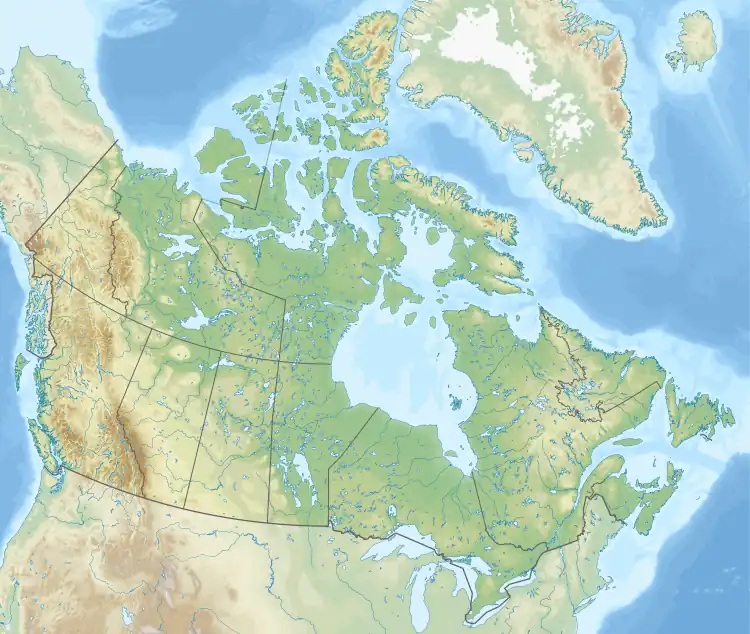Clandonald | |
|---|---|
 Clandonald Location of Clandonald  Clandonald Clandonald (Canada) | |
| Coordinates: 53°34′19″N 110°42′50″W / 53.57194°N 110.71389°W | |
| Country | Canada |
| Province | Alberta |
| Region | Central Alberta |
| Census division | 10 |
| Municipal district | County of Vermilion River |
| Government | |
| • Type | Unincorporated |
| • Governing body | County of Vermilion River Council |
| Area (2021)[1] | |
| • Land | 0.47 km2 (0.18 sq mi) |
| Population (2021)[1] | |
| • Total | 117 |
| • Density | 248.1/km2 (643/sq mi) |
| Time zone | UTC−07:00 (MST) |
| • Summer (DST) | UTC−06:00 (MDT) |
| Area code(s) | 780, 587, 825 |
Clandonald is a hamlet in central Alberta, Canada within the County of Vermilion River.[2] It is located approximately 28 kilometres (17 mi) north of Highway 16 and 58 kilometres (36 mi) northwest of Lloydminster.
The hamlet takes its name from Clan Donald, a Highland Scottish clan.[3]
Demographics
In the 2021 Census of Population conducted by Statistics Canada, Clandonald had a population of 117 living in 46 of its 56 total private dwellings, a change of 7.3% from its 2016 population of 109. With a land area of 0.47 km2 (0.18 sq mi), it had a population density of 248.9/km2 (644.7/sq mi) in 2021.[1]
As a designated place in the 2016 Census of Population conducted by Statistics Canada, Clandonald had a population of 109 living in 46 of its 61 total private dwellings, a change of 0% from its 2011 population of 109. With a land area of 0.48 km2 (0.19 sq mi), it had a population density of 227.1/km2 (588.1/sq mi) in 2016.[4]
See also
References
- 1 2 3 "Population and dwelling counts: Canada and designated places". Statistics Canada. February 9, 2022. Retrieved February 10, 2022.
- ↑ "Specialized and Rural Municipalities and Their Communities" (PDF). Alberta Municipal Affairs. January 12, 2022. Retrieved January 21, 2022.
- ↑ Place-names of Alberta. Ottawa: Geographic Board of Canada. 1928. p. 34.
- ↑ "Population and dwelling counts, for Canada, provinces and territories, and designated places, 2016 and 2011 censuses – 100% data (Alberta)". Statistics Canada. February 8, 2017. Retrieved February 13, 2017.